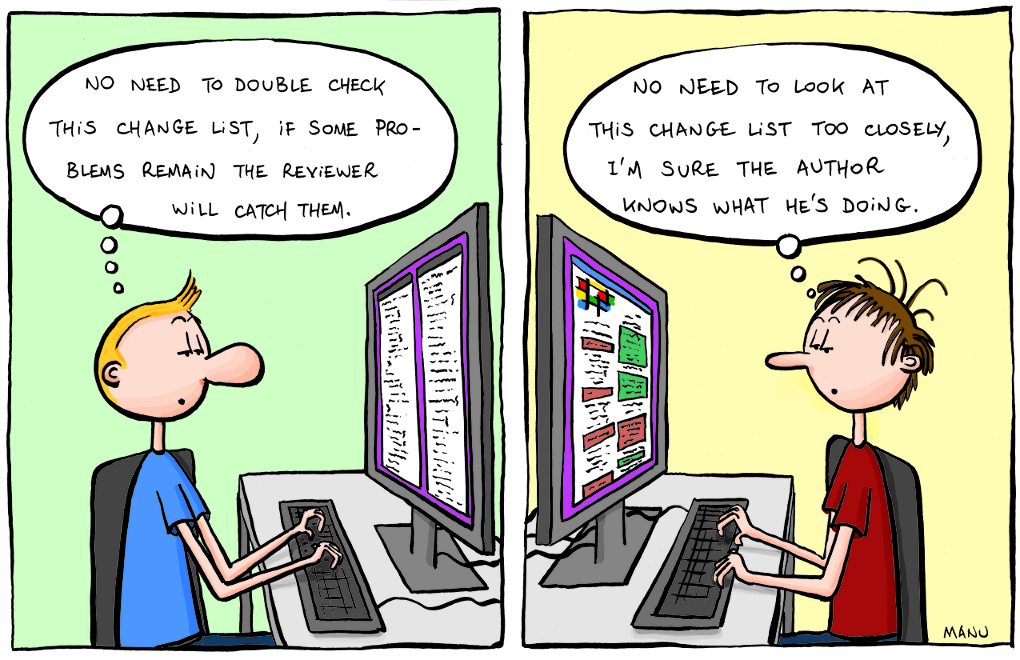How about the definition as on the Wikipedia: Code review is systematic examination of computer source code.
I think the main added value of code reviews is knowledge sharing and not finding defects. That's why I would like to add a bit of more text, how about this:
Code review is systematic examination of computer source code with the goal of sharing knowledge and minimizing defects.
After reading The Best Kept Secrets of Peer Code Review by SmartBear I really think the lightweight checklist-based code review they describe is a good fit for a standard for code-reviews.
The checklist-based code review works a bit as following:
- Programmer reviews his/her own code. Puts any found mistakes on a checklist and dates the last occurrence
- Use this same checklist to check each line of code of other programmers, update the occurrence field when you find an issue
- Use part of checklist of team members as a team checklist
- Make sure the list does not become to long, max 20 items
- Time-box code review sessions, with a max of one hour
- After a while remove items that stop occurring from the checklist
This way you always have an list of issues the team members are making. They can learn from each others mistakes. If used correctly the team will stop making the same mistakes over time and thus can remove items from the checklist.

